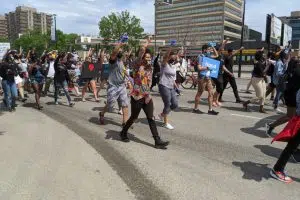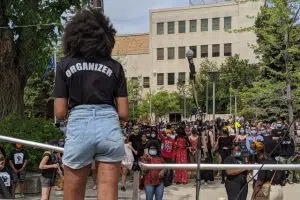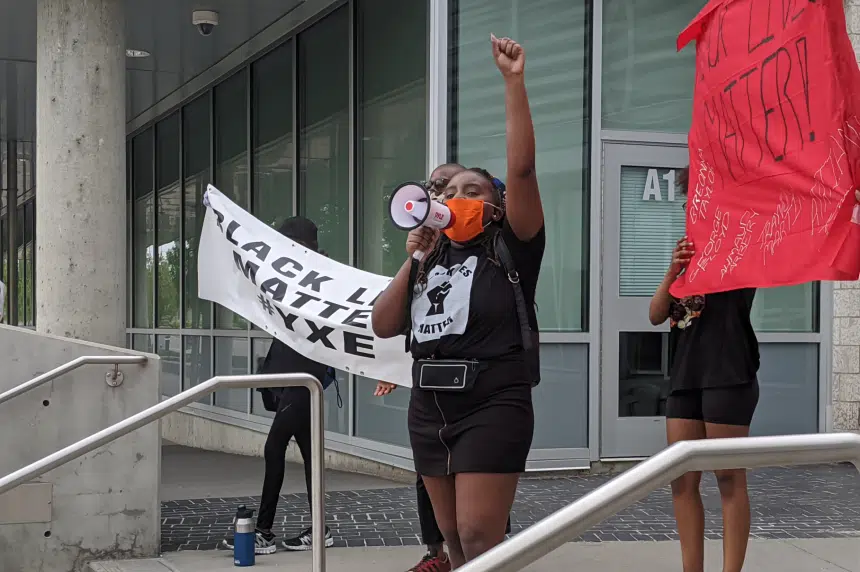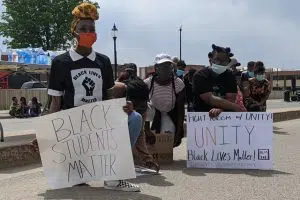Paula Collins never imagined she would see massive crowds of people gathering in Saskatoon to chant: “Black Lives Matter.”
Collins helped organize the first Black Lives Matter protest in Saskatoon in 2016. Roughly 120 people showed up to the demonstration.
On Saturday, Collins was one of the approximately 1,000 people marching in the Black Lives Matter Solidarity March at Kiwanis Park to call for justice against Black people killed or assaulted by police.
“We didn’t have a lot of support. We had positive comments, but a lot of negative comments,” Collins said of the first march in 2016 before reflecting on what she saw on Saturday.
“The world has changed. I’ve seen young people who have taken charge and have demanded justice, who have said they’re coming together as a people and letting the world know that we are here and we matter.”

Protesters march through downtown Saskatoon during the Black Live Matter Solidarity March on June 13, 2020. (Keenan Sorokan/650 CKOM)
Members of Black Lives Matter YXE, which organized the march, led the crowd to the police station and City Hall before returning back in roughly three hours.
At the pause outside police headquarters, speakers took turns telling stories of LGBTQ2+, Black and Indigenous people hurt or killed in interactions with police.
“The common denominator in all these stories is we want to be treated with respect,” said the final speaker. “We don’t want to leave our house wondering if it will be the last time.”
At one point, the crowd dropped to a knee for several minutes in complete silence.
The sprawling crowd then moved back towards Kinwanis Park and stopped at City Hall for another round of speeches, this time calling for institutional reform and enhanced education to better support marginalized people.
“We need action in all levels of government. In all levels of institutions — in all of us,” Ali Abukar, Chief Executive Officer of the Saskatoon Open Door Society, said prior to the march’s departure.
While widespread reform hasn’t happened yet, protester Delya Mangaza noted that plenty of positive change, like the removal of confederate and colonial statues and memorials, has happened in the 18 days since George Floyd was killed during a confrontation with Minneapolis Police on May 25 to spark protests all over the world.
“They did nothing else but destroy Black people, destroy our culture and make us feel bad about who we are,” Mangaza said of the memorials being removed.
“I have seen a couple rallies, but this one is life-changing — I’ll come anytime.”

An organizer speaks to the crowd gathered outside City Hall during the Black Live Matter Solidarity March on June 13, 2020. (Keenan Sorokan/650 CKOM)
On Friday, organizers of the march asked for no police presence and offered to have police march as civilians. Instead, volunteer marshals led the group along the route as police remained at a few intersections to stop traffic and allow the march to pass by motorists.
Collins fells empowered and confident that some of the reform talked about on Saturday will happen. She imagines the momentum will continue to build.
“It’s not just Saskatoon, it’s the whole world,” Collins said, mentioning protests happening in other continents.
“There is change that is coming.”












